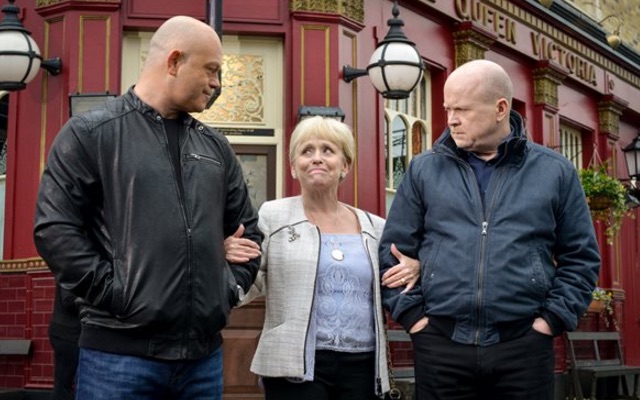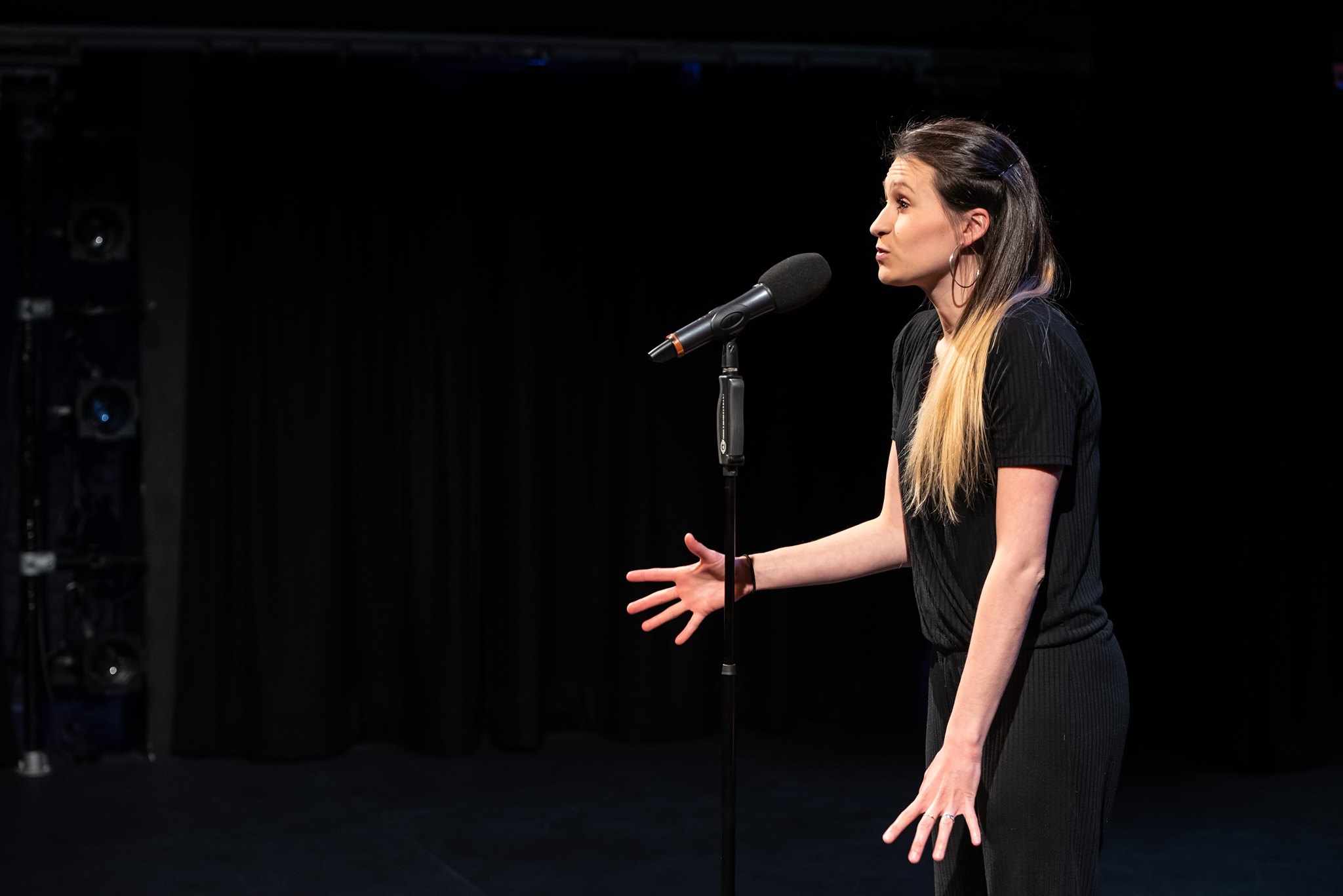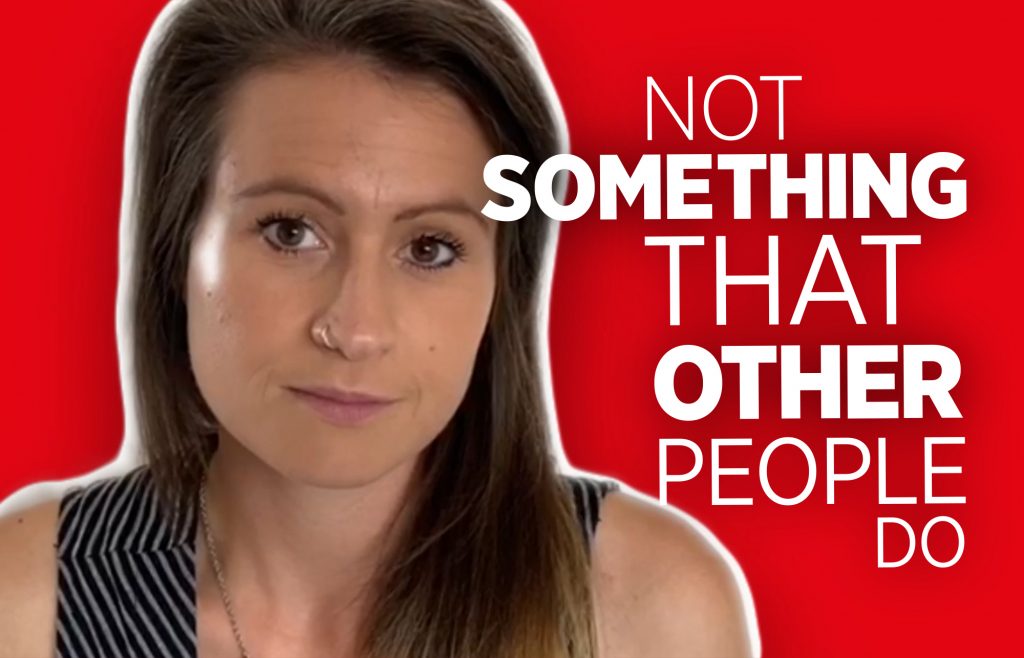Have you ever wondered just what it takes to be a scriptwriter on EastEnders or other massive soap? We all remember the big storylines, but who’s behind them?
Leicester’s Jess Green has gone from delivering poetry workshops, to writing full poetry shows, becoming BBC Slam Champion, and now to being a scriptwriter on EastEnders. Her first episode aired in January and we caught up with her to find out more about it.
••••
Tell us a bit about your career and how you got started.
I’ve always written, it’s the only thing I ever wanted to do really. When I was 7 I wrote a weekly newspaper and took it round to all the neighbours. It mainly reported on the life of my hamster. I went to Liverpool John Moores University and studied Creative Writing, without any idea of how I could turn that in to a job, but I absolutely loved it. I still think those three years were the best of my life. Being able to study something that I loved full time was pure joy.
While I was there I discovered Performance Poetry and began writing and performing my own work. When I graduated I decided, with absolute determination, I wanted to be a Performance Poet as my job. I moved back in with my parents in Leicester, got a part-time job as a school librarian and spent the rest of my time delivering poetry workshops in schools, prisons and with the probation service, and travelling round the country every evening for gigs and open mic nights. It was exhausting but when you’re 23 you have limitless energy!
Eventually I had enough paid work to move out of my Mum’s house and give up the librarian job. I began to garner a following in 2013 when I wrote Dear Mr Gove. Since then I’ve written two poetry shows, Burning Books (2015) and A Self Help Guide To Being In Love With Jeremy Corbyn (2018), both published by Burning Eye Books, which received 5* reviews on their national tours and at the Edinburgh Fringe. I developed Burning Books in to a play which toured nationally in 2018, the same year that I became BBC Slam Champion.
In 2019 I got a place on the BBC Writers Academy which aims to give writers the tools and creative confidence to write for the BBC’s flagship dramas – EastEnders, Casualty, Holby City – as well as developing your own ideas for a series.
Was writing for soaps something that you’d always been interested in?
I grew up watching EastEnders, Coronation Street, Casualty and Holby. I loved EastEnders and Corrie in particular and when I went off to university I said all I wanted to do was to write for them. But I had no idea how you got started in the industry. And then I fell in love with performing. But ten years on, I’m delighted to have come back to the thing that made me want to write in the first place.
Were you a fan of EastEnders before working on the show? What was your favourite ever storyline?
I loved EastEnders and some of those iconic character – Bianca, Tiffany, the heyday of the Mitchell Brothers. In 2008, the Whitney/Tony story had a profound effect on me. It was a story which just wasn’t being told anywhere else at the time; it was powerfully written with such a good understanding of grooming. I was a similar age to Whitney and it made me think about the way that me and my friends had been treated by older men.
How did the reality of the role compare to what you’d imagined?
I just loved it! The meetings about story, working with your script editor, being sent the final shooting script and then seeing your work on screen, it’s really exciting. I hope the novelty of that never wears off. It’s interesting learning how scheduling affects the stories as well, particularly with Covid and current social distancing guidelines impacting how many people you can safely have in one space.
You’ve had a successful career to date as a poet, what’s been the highlight of you work before this?
Maybe becoming BBC Slam Champion at the Edinburgh Fringe in 2018. I was performing my show (A Self Help Guide To Being In Love With Jeremy Corbyn) every day at the festival, having worked on it for months so performance wise, I was at the top of my game. I caught Laryngitis and completely lost my voice the week of my first heat but managed to overcome it just in time to compete. The final round was in the big BBC tent and was filmed for telly (although I’m not sure it actually ever made it on to telly!). All my poems were a bit long for the 3 minute cap so I’d had to edit them that day and remember the edits live on stage, so it felt like such high stakes at the time. I couldn’t believe it when I won.
You’ve done a lot of work locally, including a fantastic lockdown project alongside Curve celebrating the city’s creativity and resilience. What do you think it is about Leicester’s creative community that makes it so special?
Loads of things. Our vibrancy and multi-culturalism play a big part. Leicester is a city where its melting pot community doesn’t just work, but is celebrated. Just look at the amount of times we’ve seen off the National Front in all their guises. I love living in a city which celebrates Diwali as much as Christmas.
We also have a city council, MPs and councillors who believe in investing in the arts which makes a huge difference to the atmosphere of the city. We couldn’t have so many festivals, arts venues and organisations without investment. People will always argue about the way council money is spent but I’m glad to live in a city which believes that investing in the arts is important.
And of course there are just so many brilliant venues, organisations and artists making a huge contribution to the creativity of the city – Pedestrian, LCB, Makers Yard, Phoenix, Curve, Upstairs at the Western, The Y.
Where can people keep up to date with what you’re up to?
Usually my website – www.jessgreenpoet.com – but since Covid hit and I lost all my live gigs I haven’t updated it. So Twitter, Instagram and Facebook I’m @jessgreenpoet.




